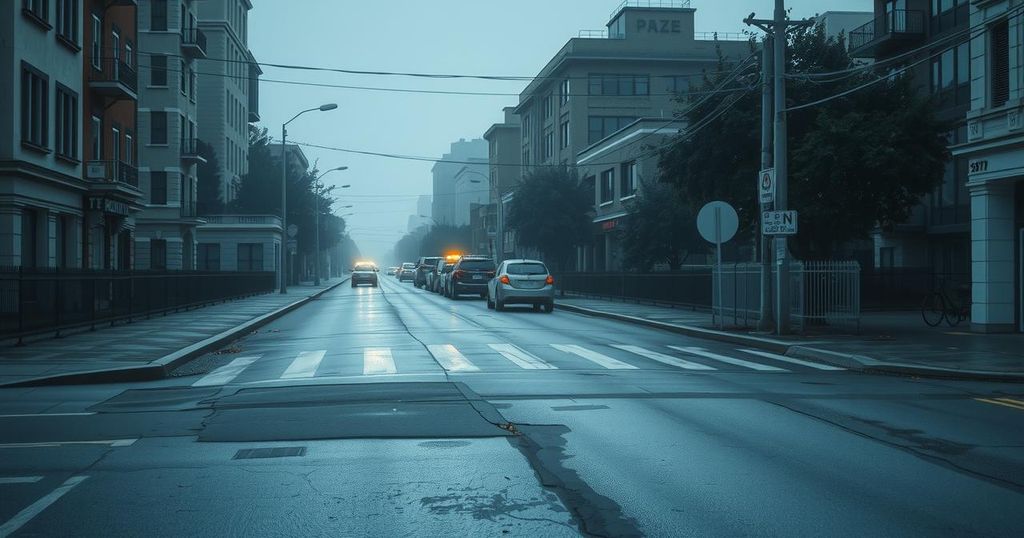Zimbabweans Stay Home Amid Planned Protests: A Day of Silence and Tension
On a day marked by anticipated protests in Zimbabwe, public participation was minimal as many stayed home, leading to reduced traffic and closed businesses. Police were present at checkpoints, seeking to maintain order following calls for an uprising against President Mnangagwa by war veteran Blessed Geza. Despite government assurances of security, fear appeared to keep citizens indoors, impacting the economy and daily operations.
On Monday, Zimbabwean authorities prepared for anticipated anti-government protests by establishing police checkpoints on roads leading to major urban areas. Searches of vehicles for “dangerous weapons” were conducted, resulting in noticeably reduced traffic in Harare and Bulawayo. Many citizens opted to refrain from going to work, and students stayed home from school.
A police presence was particularly noted in Bulawayo, where patrols traveled along the largely deserted Joshua Mqabuko Street. A correspondent from ZimLive described the city center as eerily quiet, likening it to a Sunday morning.
Calls for an uprising against President Emmerson Mnangagwa came from outspoken war veteran Blessed Geza, who criticized the president’s leadership and accused him of neglecting corruption issues. Although authorities have charged Geza with treason, he has successfully avoided arrest.
Prior to the protests, Geza urged supporters on social media to “fill up the streets” and remove Mnangagwa from power, framing the action as necessary for all Zimbabweans. However, reports indicated that by 8 AM, there was little visible protest activity, suggesting that many citizens chose to remain home, potentially out of fear.
Observers noted that Geza’s attempts to incite action may have ironically resulted in a quiet day, with industry operations negatively impacted and major supermarkets in Harare and Bulawayo remaining closed. Authorities had called for normal business operations, with police assurances of adequate security measures.
Leave was canceled for all police officers, and many were reportedly surprised to receive US$50 deposited into their accounts the previous Saturday. Furthermore, police detectives were required to sign a document under the Official Secrets Act, pledging loyalty to the government and stipulating that they would not disclose information regarding arrested individuals.
In summary, the anticipated protests in Zimbabwe resulted in a significant show of force by the police and a subdued public response. While Blessed Geza called for citizens to resist government corruption, the lack of participation indicated either fear or disillusionment among the populace. The government’s proactive measures, including the cancellation of police leave and financial incentives, highlight the tension surrounding political dissent in the country.
Original Source: www.thezimbabwemail.com




Post Comment